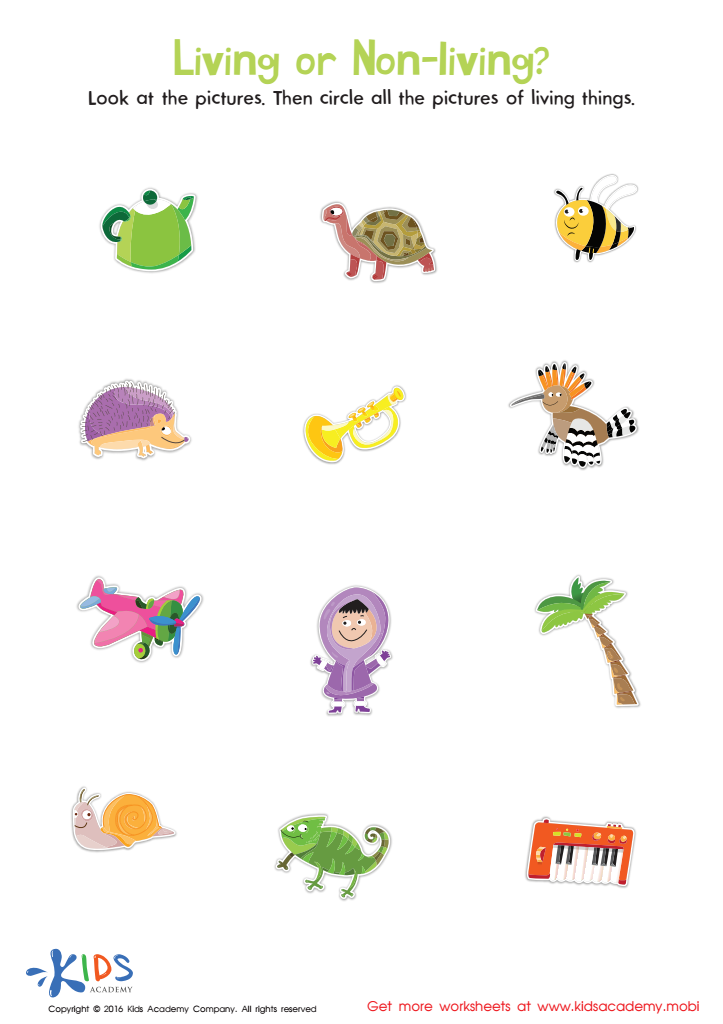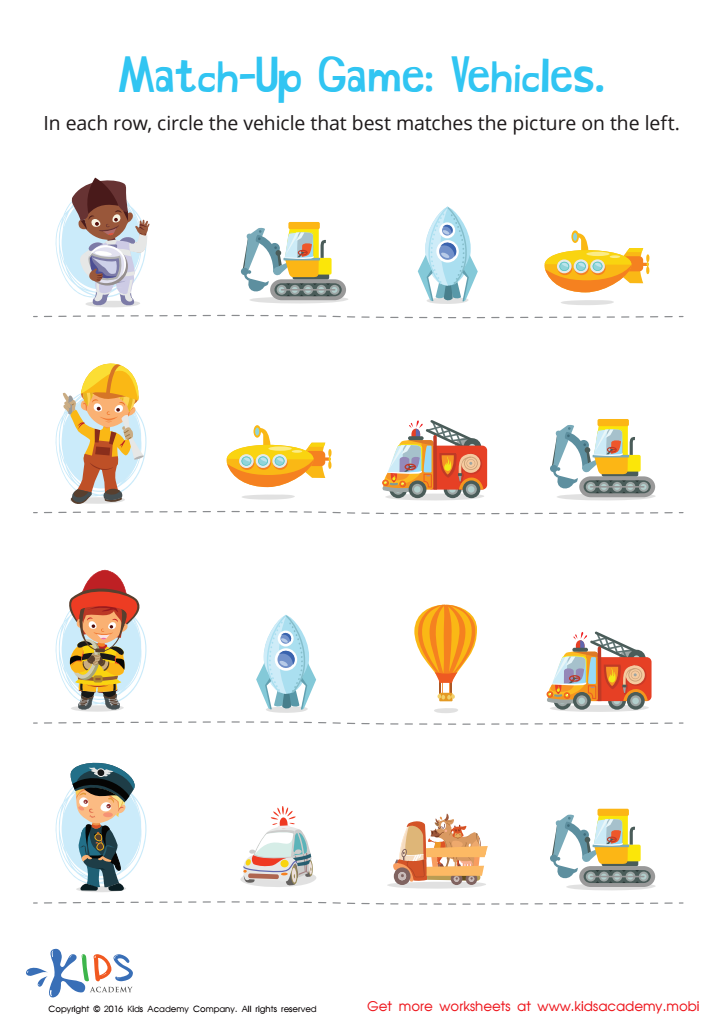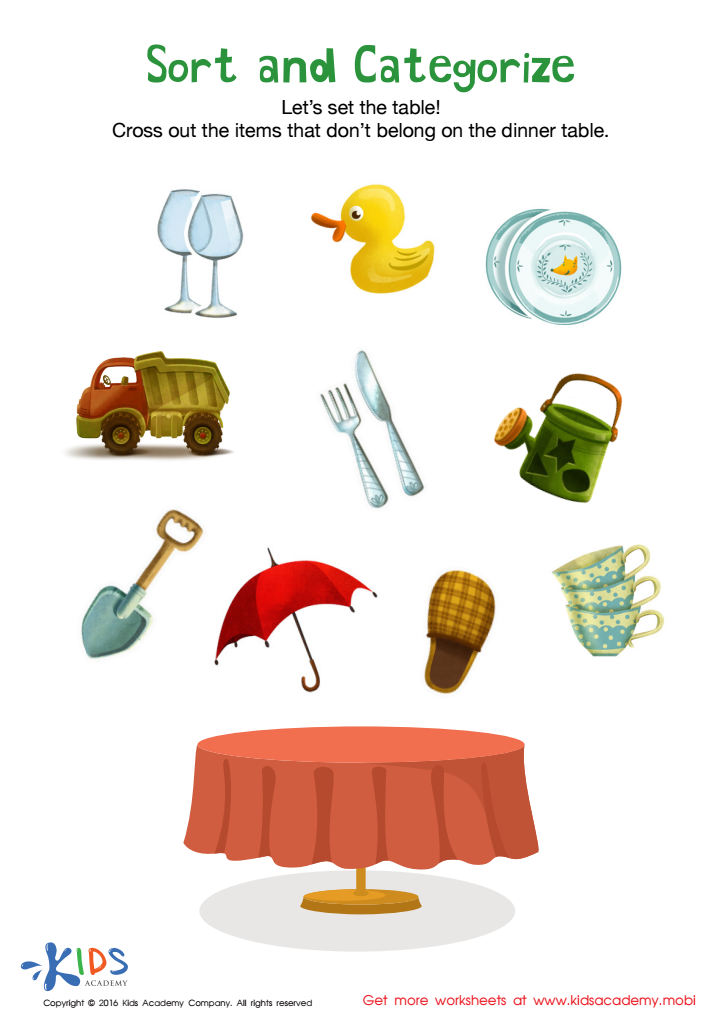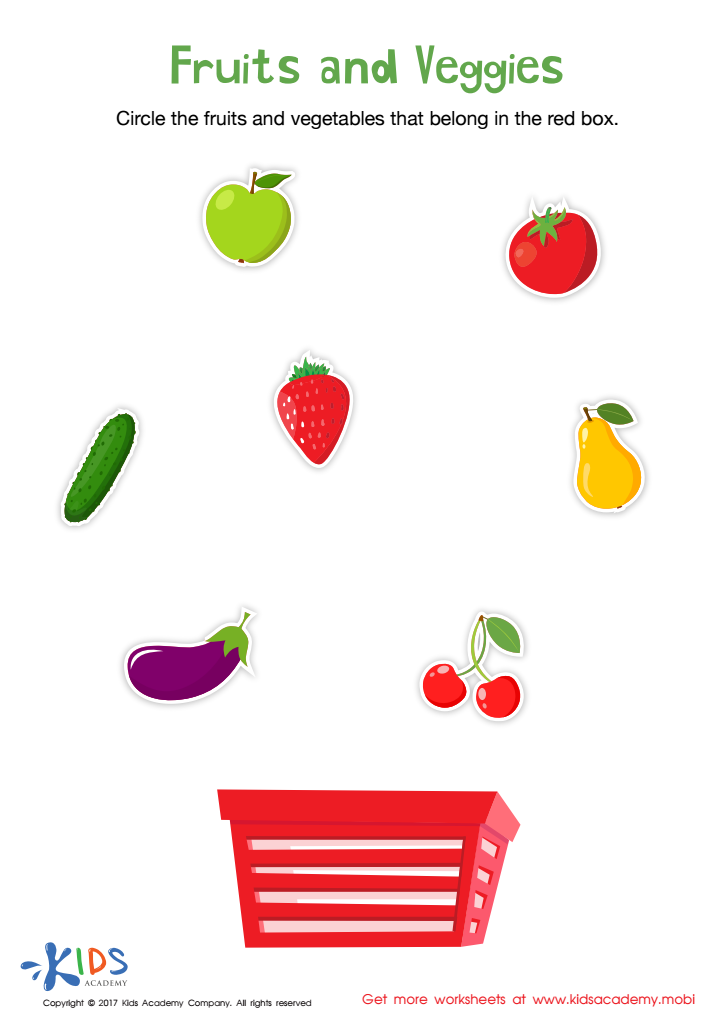Categorization skills Normal Matching Worksheets for 5-Year-Olds
6 filtered results
-
From - To
Boost your 5-year-old’s cognitive development with our Categorization Skills Normal Matching Worksheets! These engaging and educational worksheets from Kids Academy are designed to enhance your child's ability to group and compare different items, stimulating critical thinking and organizational skills. Through fun and colorful activities, such as matching objects, children learn to recognize patterns, categorize items, and make logical connections. Perfectly tailored for early learners, these worksheets provide a solid foundation for mathematical concepts and problem-solving abilities. Make learning an exciting adventure with our expertly crafted resources, ensuring your child masters essential categorization skills while having fun!


Identifying Living and Non–living Things Sorting Worksheet


Matching: Classifying Toys by Size Worksheet


Vehicles Worksheet


Logic Game Sorting Worksheet
Categorization skills are fundamental cognitive abilities that enable children to organize knowledge and make sense of their world. For 5-year-olds, developing solid categorization skills is crucial as it lays the groundwork for more complex cognitive activities, such as problem-solving and decision-making.
Parents and teachers should care about fostering categorization and normal matching (the ability to group items based on common attributes) for several compelling reasons. First, categorization aids in language development; as children learn to group objects, they expand their vocabulary to include names for different categories and subcategories, enhancing their communication skills. Second, these skills are pivotal for academic readiness. Early understanding of grouping and sorting helps children perform critical math operations and follow logical sequences essential in reading and science.
Moreover, categorization allows children to make connections, promoting memory retention. For example, knowing that cats, dogs, and horses belong to the 'animals' category helps them retrieve this information more efficiently. Socially, categorization skills enable children to understand plural and inclusive concepts, such as differences and similarities among people, fostering empathy and social harmony.
In summary, robust categorization skills serve as a critical educational foundation, and attentive parents or teachers can significantly enhance a child's cognitive progression by incorporating activities that strengthen these skills into daily routines.
 Assign to My Students
Assign to My Students


















